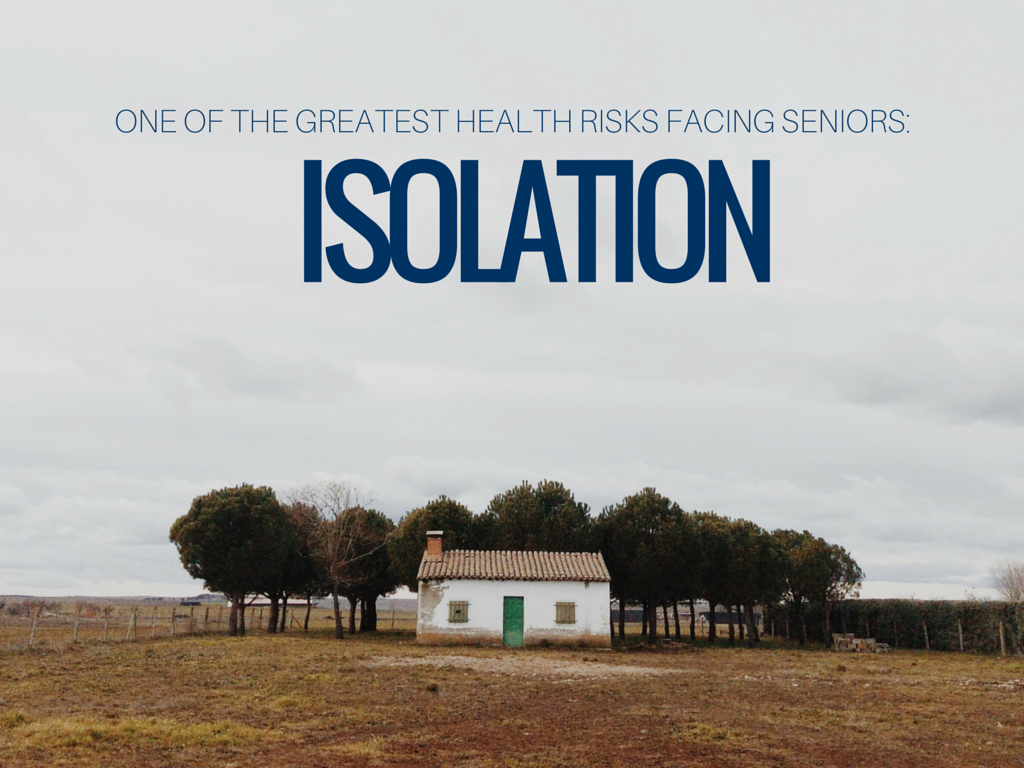
As your parents age, you likely have a growing number of worries about their health, safety at home and general wellbeing. These senior health care concerns often focus on diet, memory, mobility, and independence. One issue that is often overlooked, but which can have a significant negative impact on an elderly parent’s health, is isolation.
How Do Older Adults Become Isolated?
There are several factors that contribute to isolation among seniors:
- Retirement
- Impaired Mobility
- Death of a Spouse, Friends, or Family
- Lack of Transportation
- Location
Although several of these factors are anticipated, few people are prepared for the mental and physical toll they can have on their parents.
Effects of Isolation and Loneliness on Older Adults
Isolation, and the loneliness that it causes, can have a negative impact on a senior’s health in a number of different ways.
- Increased risk of mortality. A recent study found that mortality rates increased in people aged 52 and older if they experienced isolation and loneliness.
- Cognitive decline and increased risk of dementia. Lonely and isolated people are more likely to experience these conditions than those who feel connected to others and are active in their communities.
- High blood pressure. Systolic blood pressure is increased in older adults who are isolated and lonely.
- Long term illness. Isolated seniors are more likely to experience long term illnesses such as arthritis, chronic lung disease, impaired mobility, and more.
- Chronic depression. Depression is a common result of loneliness and isolation. While depression is a problem in itself, it can lead to many physical issues as well since depressed elderly people often make poor diet, exercise, and other lifestyle choices.
And, in addition to these direct health risks, the Department of Health and Human Services Department of Aging reports that seniors who are isolated or lonely are also more likely to be the victims of elder abuse as they have no one to check on them or assure that they are safe.
As you care for your elderly parents, it is important to keep these issues in mind and watch for signs of isolation or loneliness. Addressing those problems will help avoid many serious senior health care issues.
Here’s What You Can Do to Help
The more connected an older adult feels, the less lonely and isolated he or she is likely to be. There are many things you can do to help keep your parents engaged with their friends, family and community — it’s one of the best ways you can support their physical and mental health.
- Call your parents. One of the most important things you can do is to call often and to program your telephone number into their home and cell phones so they can reach you quickly and easily. Don’t let your conversations focus solely on health concerns or problems. Take time to discuss their lives and interests as well.
- Visit and encourage others to visit. Spend time with your parents, even if it’s just taking them lunch once or twice a week and chatting about their day. This will allow you to check on them while helping them stave off loneliness.
- Encourage them to volunteer. There are many volunteer opportunities in most communities and the experience of giving back can help alleviate feelings of isolation and loneliness and also build a sense of self-worth.
- Consider assisted living or other living options. If you parents are unable to drive or are physically isolated by geography or lack of public transportation, the move to a well-run senior living environment may help. Find a community with a strong social program which has activities which will interest your parents.
Isolation and loneliness are two unexpected issues that could have a significant impact on an elderly parent’s health. Do your best to keep mom and dad connected to you, their friends, and their community so they can experience the benefits of being a part of the world around them.












